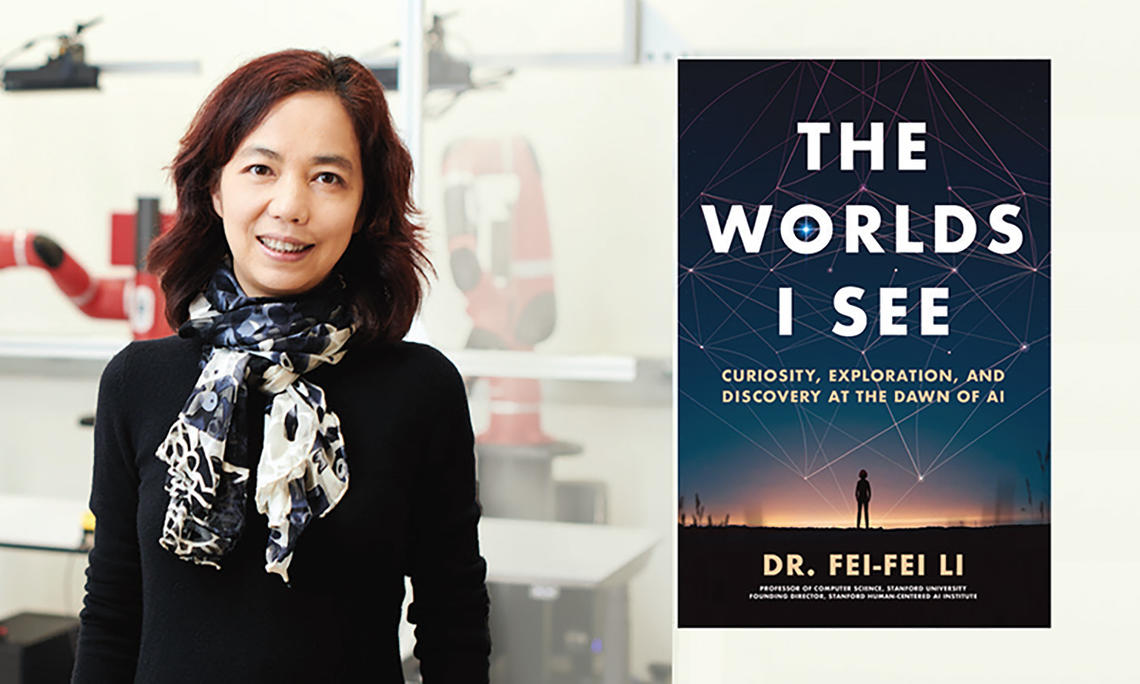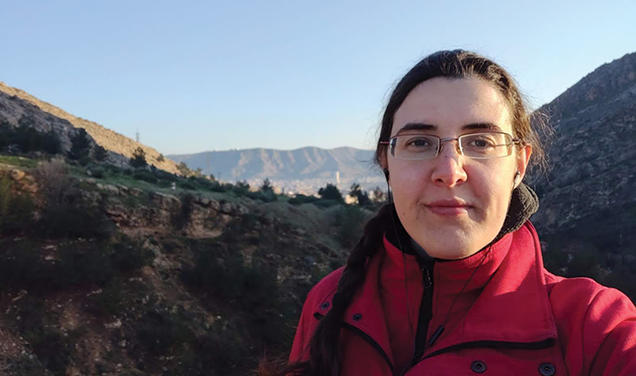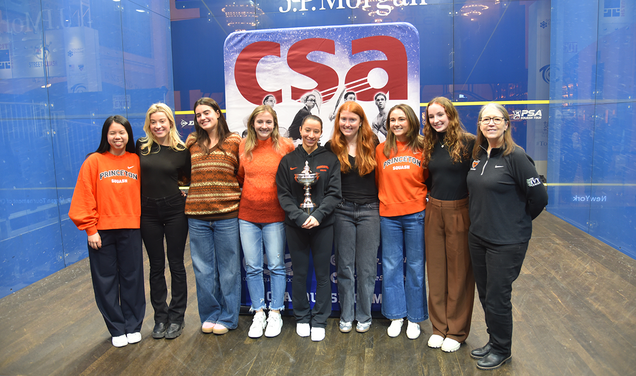
When I took office in 2013, I established the Princeton Pre-read, a ritual that introduces incoming first-year students to Princeton’s intellectual life through the experience of reading and discussing a book together. The Class of 2028’s book is The Worlds I See by Woodrow Wilson Award winner Fei-Fei Li ’99. Here’s an excerpt from my foreword to the Pre-read edition, which the incoming class will receive this summer. I encourage all alumni to read along with us!
Dear Members of the GREAT Class of 2028,
Warm greetings from Princeton! My colleagues and I look forward to welcoming you to campus later this year. Your talents, interests, and perspectives will add tremendously to this community, and I am confident that you in turn will develop and grow through the experiences, interactions, challenges, and opportunities that await you here.
I am delighted to share with you this copy of the Princeton Pre-read selection for 2024, Fei-Fei Li’s The Worlds I See: Curiosity, Exploration, and Discovery at the Dawn of AI. The Pre-read is one of many traditions you will encounter at Princeton and is part of a series of activities that will introduce you to the scholarly and communal life of the University. I like to think of it as a natural counterpart to the Pre-rade, a joyous ceremony in which you and your classmates march together to enter Princeton through FitzRandolph Gate.
Like several other Pre-read authors, Fei-Fei Li was herself once a Princeton undergraduate. Professor Li is a proud alum of Princeton’s great Class of 1999, and she currently serves as the Denning Co-Director of the Stanford Institute for Human-Centered Artificial Intelligence and as the Sequoia Professor of Computer Science at Stanford University.
Professor Li’s book weaves together multiple narratives. One of them is about her life as a Chinese immigrant in America. She writes poignantly about the challenges that she and her family faced, the opportunities they treasured, and her search for a sense of belonging in environments that sometimes made her feel like an outsider.
A second story is about how she found her life’s mission—her “North Star,” she says—as a scientist. Professor Li beautifully illuminates the persistence that science demands, the disappointments and detours that are inevitable parts of research, and the discoveries, both large and small, that sustain her energy. Wherever your interests lie in the humanities, the social sciences, the natural sciences, or engineering, I hope that Professor Li’s example will inspire and encourage you as you explore the joys of learning at Princeton, a place that Professor Li calls “a paradise for the intellect.”
A third story is about artificial intelligence and what it means for our future. Professor Li’s research helped to catalyze the rapidly evolving forms of AI that are changing the world. Now she is focused on ensuring that the AI revolution will be “unequivocally human-centered.” Professor Li predicts that this quest will “define this century,” requiring not just scientific expertise but also an understanding of philosophy, ethics, and law, among other disciplines.
For Professor Li, these three narratives connect not only in her personal experience, but through more basic truths about insight and innovation. Issues about how to develop a human-centered AI, and how to understand our personal identities, come together in “the question of what motivates us, in our hearts and our minds, as we create,” she writes. The answer to that question, she suggests, “will shape our future”—and, I would add, it will also shape your life during your time at Princeton and afterward.
Professor Li will join us during Orientation Week to talk about The Worlds I See. Over the course of the academic year, I will host several Pre-read discussions in the residential colleges that will provide us with opportunities to talk about the book and the broader issues it raises.
I look forward to examining these topics and others with you, and to welcoming you when you arrive on campus later this year. In the meantime, I hope that you enjoy The Worlds I See.










0 Responses